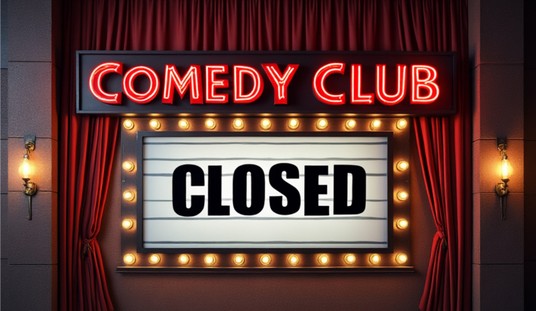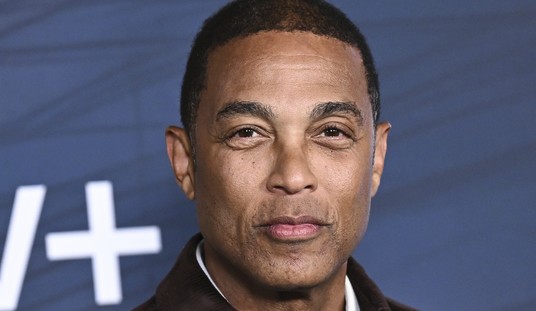The God’s honest truth is, everybody sucks at prognostications. Like Yogi Berra said, “It’s tough to make predictions, especially about the future.”
But since the dawn of time, certain men have consistently claimed the gift of “second sight.” And just as consistently, other men believed them. There’s always been great social equity in claiming psychic powers — prophecy, health, sorcery, magic — that seem to defy our primordial limitations.
The world is strange, scary, and mysterious. So, we want a cheat-code.
Psychic powers are one way to do it. Today’s prophets are less likely to divine tea leaves, gaze into a crystal ball, or fiddle with Tarot cards. Instead, they pore through Big Data, cherry-picking key stats — prioritizing some, minimizing others. And then, just like Humpty Dumpty, they reassemble the numbers, examine the results, and presto: a “scientific” prediction.
All pollsters use a version of this methodology to forecast elections. Some are dishonest while others are simply lousy at prognosticating, but only a handful can disregard their biases and focus on the cold, hard stats.
But either way, it’s not really science; it’s storytelling. The “scientist” is using data points to tell a story.
What’s particularly telling about the limitation of Big Data is that nobody has figured out an algorithm for gaming the stock market. There’s a near-limitless number of data points in the economic sector, yet no one has ever developed a foolproof formula that allows you to buy and sell stocks without risk. (I’ve worked with those who seem to claim otherwise, but trust me: no formula exists.)
And economic data points are updated every minute of every day! There’s exponentially more economic data than political data! But if “scientists” can’t perfect an economic formula, why would we assume they’d be capable of perfecting a political one?
The future isn’t guaranteed. Not in finance and definitely not in politics.
With this in mind, Nate Silver — one of America’s top statisticians, data scientists, and political prognosticators — released an interesting analysis yesterday: “Are We Entering a Conservative Golden Age?”
He posits that Trump’s popularity and political momentum might be even greater than his electoral victory, because:
- It’s much harder than in 2016 to write off Trump’s win as a fluke. He won the popular vote. There’s no Electoral College, Comey Letter or (dubiously) Russian interference to blame for his win. Democrats essentially lost the election twice last year — first with Biden and then with Harris — and this came on the heels of Hillary Clinton’s loss in 2016. Maybe it’s bad candidates — the Democrats’ presidential nominees lately have been about as successful as New York Jets quarterbacks — but their product isn’t selling.
- Furthermore, Democrats show every sign of being defeated. Unlike in 2017, there’s little protest activity against Trump. MSNBC ratings and Washington Post subscriptions are down. Kamala Harris and Joe Biden’s teams are fighting, but none of it is particularly constructive or forward-looking, and there’s no clear consensus on what the Democratic Party should do next.
- Trump’s win was buoyed by some sharp demographic shifts, including among voters that Democrats once took for granted as being part of their “team”: Hispanic and Asian American voters, and to a lesser degree Black voters (especially Black men) — and younger voters, too. Democrats can no longer credibly claim to win elections just by turning out their base; in fact, Republicans outnumbered Democrats in the November electorate by 5 points. Americans are also voting with their feet, fleeing blue states and cities.
- To borrow the terms from my book, the River is ascendant, and the Village is reeling. Trump’s alliance with the Tech Right is something mostly new and potentially quite powerful in terms of media and especially financial muscle — even if it also offers Democrats opportunities for pushback, given how unabashed Trump is at alternatively cultivating and threatening the world’s wealthiest men.
- The media is making a sharp and conspicuous turn to the right from Meta eliminating its fact-checking program and DEI initiatives to Jeff Bezos quashing the Post’s endorsement of Harris and Saturday Night Live poking fun at its sibling network, MSNBC. The left’s constellation of A-list celebrities aren’t interesting or cool in a way that pays political dividends: Joe Rogan’s endorsement seems to have mattered more than Taylor Swift’s. Even universities, in part because of the Supreme Court’s decision on affirmative action, are retreating from peak wokeness-or-whatever-you-and-to-call-it, from restoring standardized testing requirements to cracking down on pro-Palestine activists.
- And these shifts are broader than just the United States — even famously immigrant-friendly Canada is turning against open borders. The status quo is deeply unpopular around the world in a way it hasn’t been in many years — although if the same pattern persists for another four years, that could be a problem for Republicans in 2028. There’s also new terrain to fight on, particularly given the rise of AI and the decline in fertility rates. The latter will probably favor conservatives initially, and with the former, it’s hard to say — but Trump has picked a side by repealing Biden’s executive order on AI.
Silver hedged his bets and didn’t commit to the inevitability of a Conservative Golden Age. Instead, he lists it as one of four possibilities:
Scenario 1 — Conservative Golden Age — is that this is indeed a straightforward victory for populist conservatism, with more of it on the way, starting with JD Vance or another Republican winning in 2028. It’s easy enough to imagine there’s more backlash to wokeness, immigration, and liberal governance left to unwind in the coil after a 16-year shift toward liberalism.
But any Conservative Golden Age will probably require a strong economy over the next four years — and more effective governance than Trump offered in his first term. One advantage to Democrats being the party of the expert classes is that they have more human capital — and as many errors as the experts might have made, you’d rather have them on your side than not. Republicans have imported some human capital from Silicon Valley, but it’s a high-variance play given the mercurial personalities (i.e., Elon) involved. Perhaps Republicans can run back the playbook by riding a reservoir of cultural grievance to the White House again in 2028, and by that point, they’ll have developed a more robust set of institutions. I just don’t think they should take much for granted about it.
However, the other three scenarios include the return of the “New Liberal Era,” a “Stalemate Era” (where Republicans and Democrats trade victories), and an “Off the Charts Era,” where the American electorate realigns in dramatically different ways.
As for which of the four scenarios are most likely, Silver’s crystal ball is cloudy:
It might surprise you to learn that I’d put roughly an equal amount of probabilistic weight in each of these buckets, including Scenario #4. The conclusion from studying history is that American politics is quite unpredictable at medium-to-long time scales. And the start of a new presidential term is often when we have the least perspective on the trends.
He buried the lede, but he’s right: “American politics is quite unpredictable.” Especially, as Yogi noted, when it comes to the future.










Join the conversation as a VIP Member